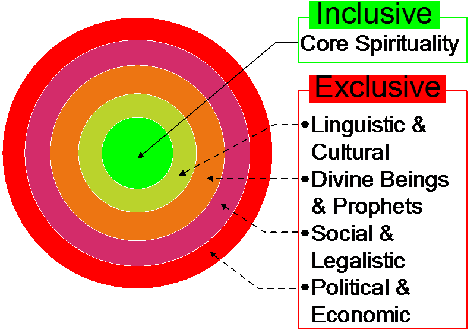Traditionally, religion has been the approach to the problem of the human condition. Examining the lives and the insights of our prophets, sages and seers, one learns that at the core of all religions they founded is their insights of a common spiritual foundation of all that exists in the perceptible universe. They deeply understood that this universe is infinite, and the spiritual source of it must also be infinite. They also deeply felt that this spiritual foundation of all things perceptible must be unlike anything perceptible. They felt the deep meaning of the humanity of everyone and everything's shared source as they felt it inside of them in the form of infinite and unbounded love and compassion that their spiritual insights awakened in them. They felt compelled by their inner experience to share their insights with everyone in their communities to help them transcend the human condition.
In their desire to help everyone, they perhaps oversimplified to get everyone on their path to ethical behaviour in the hope of a subsequent spiritual search. In their days, the universe of different communities was limited to their own geographical surroundings with their own divine beings. Historically, that is the way humanity existed for a considerable period.
Our prophets, sages, and seers used culturally acceptable divine imagery as metaphors for the one unseen and ineffable reality of their deepest spiritual insights. Over time, community interests veiled the reality of the substratum with divine imagery and related ritualistic dogma, further entrenching geographical fragmentation. Religion may be necessary for building community but not enough to solve the problem of human fragmentation to build humanity.
The accompanying diagram shows how different layers of exclusive and potentially divisive community interests combine with the unavoidable linguistic, cultural and divine differences to veil human religions’ inclusive and unitive core spirituality. Thus, religion may be incapable of changing the human fragmentation scenario for historical, institutional and community considerations. Religious emphasis on faith rather than believability and reason is a further deterrent to changing the status quo.
